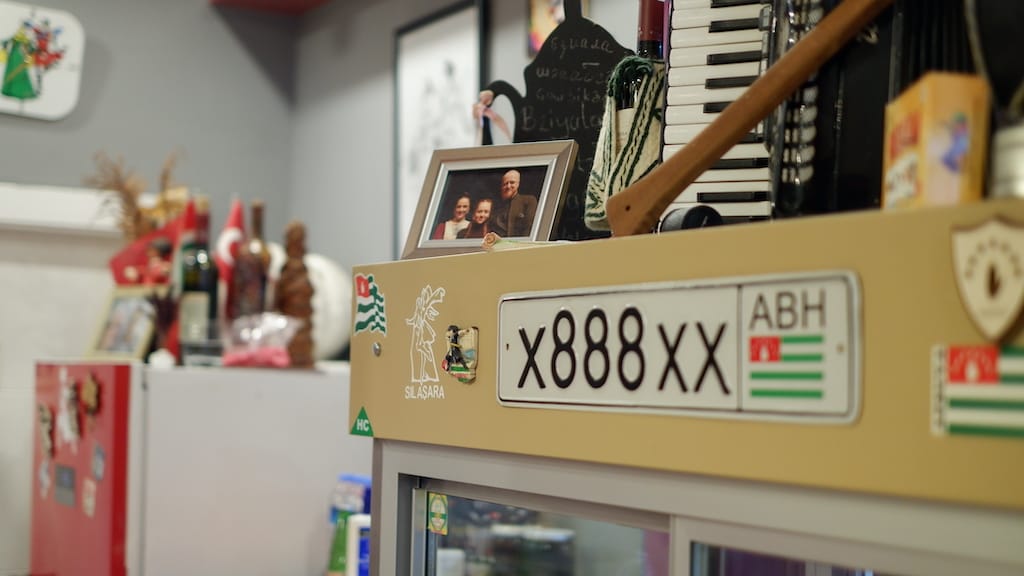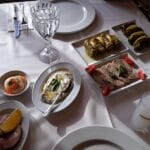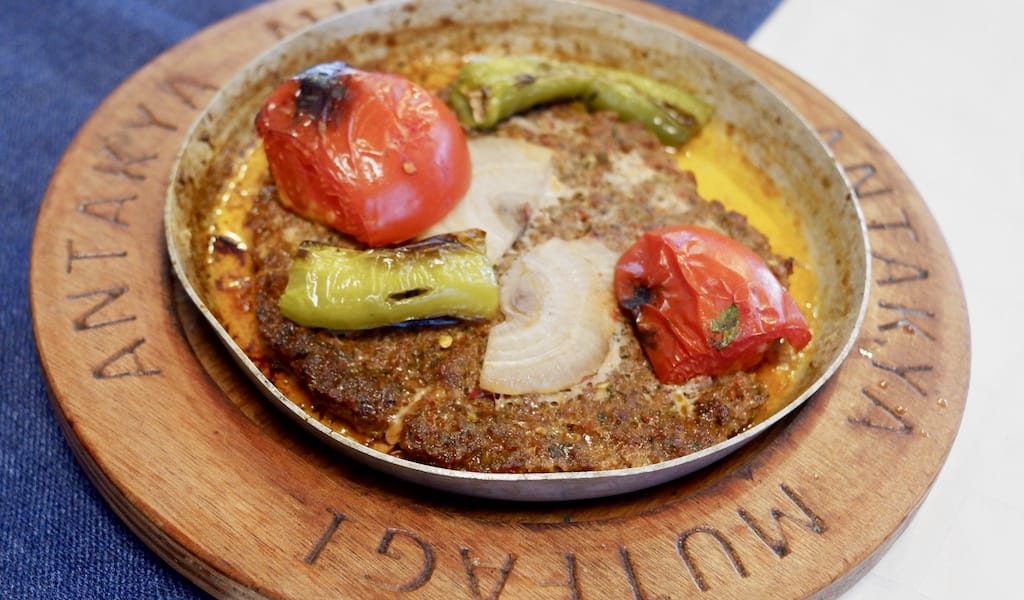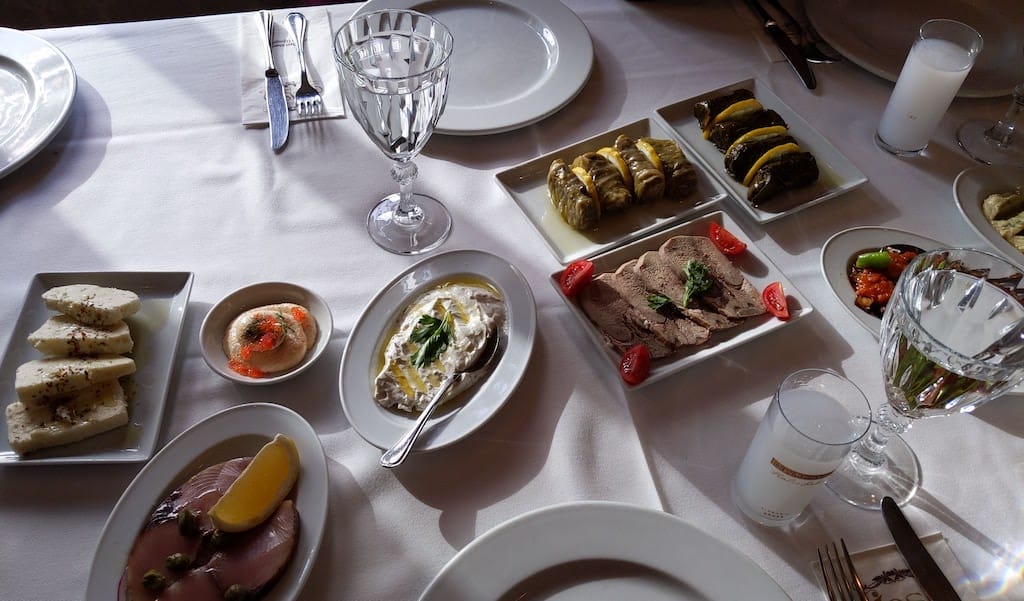In every corner of Istanbul, enticing traces of Turkish cuisine from throughout the country, as well as the cooking of other neighboring regions, can be tucked away in the city’s backstreets. These range from a Bulgarian kebab joint in Bağcılar on the western European side to a Bosnian meyhane in Pendik on the eastern stretches of the Anatolian side and a Georgian restaurant in the heart of Beyoğlu.
We can add the suburban Marmara Seaside district of Maltepe to this formidable list, as it is home to Sılaşara, which is perhaps the only Abkhaz restaurant in the world outside of Abkhazia or Georgia. Officially considered a part of Georgia, the region of Abkhazia straddles Georgia’s northwest Black Sea coast, and its small population is dwarfed by the number of people with Abkhaz roots who have called Turkey home for well over a century.

In 1864, the Russian empire seized the lands of Circassia and Abkhazia after a protracted century-long battle, resulting in the slaughter of hundreds of thousands of people and a mass exodus to the Ottoman Empire. Circassians and Abkhaz people are among the millions of Turkish citizens whose ancestors came from the southern Balkans, the Caucasus and other parts of the former Ottoman Empire. Many settled in the Turkish provinces of Adapazarı and Düzce, which is where some of the ingredients in Sılaşara’s dishes are cultivated.
We first ventured out to Maltepe two years ago to eat at Sılaşara with our friend and fellow culinary adventurer Tuna Bozalan, who has Abkhaz roots and said that the restaurant’s dishes reminded him of his grandmother’s cooking. Opened in 2015 by husband-and-wife team Haluk and Gülay Salcan, who still run the kitchen, Sılaşara means “my light” in the Abkhaz language, and the restaurant is indeed a beacon of unique and delicious cuisine.

Abkhaz food is not unlike its Georgian or Circassian counterparts, but it is considerably spicier, and we noticed immediately that acıka, an often-fiery red pepper paste, walnuts and cilantro were common staples on the menu. Acıka, in particular, is so important that it is used in place of salt, though alongside a heady blend of garlic and other spices (Sılaşara’s acıka itself contains a healthy amount of salt).
We dive into a plate of haluj, delicious boiled dumplings filled with a ricotta-like cheese produced with natural yeast. The cheese is infused with a lively herb that we had never tasted before.

“We have an herb called asıbıra. This is an Abhkaz herb and you can’t find it at the spice shops. We grow in the villages of Adapazarı and Düzce. In a way it’s part of the wild mountain thyme family, but it’s not exactly thyme,” said Haluk Salcan, adding that the haluj cannot be made without this special gift from the ground.
Acıka also featured prominently in the next dish, which Salcan brought out as a complimentary treat. Ahulçapa was a delightful meze made with boiled collard greens that are cooked down and added to a mixture of onion and acıka, and combined with walnuts ground to a paste. The flavors went beyond spicy, with wonderful elements of crunch and richness.
“Our food is a bit difficult; it demands a bit of time,” Salcan says matter-of-factly.
It’s not long before our conversation switches to politics, and we are swiftly rebuked when we mention Abkhazia’s status as a breakaway state:
“No, it’s a republic, a republic,” Salcan protests, pointing out that Russia and Syria are among the small handful of UN countries that have recognized it. He adds that he thinks it will just take time for more countries to officially consider Abkhazia a republic, and that his wish is for Turkey to follow suit. Salcan holds an Abkhazian passport, visits regularly and says that there are no issues in terms of trade.
However, three weeks into Salcan’s visit to his ancestral homeland in 1992, war broke out between Abkhazia and Georgia over the former’s declaration of independence. He ended up being stuck there for four and a half months. The bloody, complicated conflict which involved numerous ethnic groups from throughout the Caucasus lasted for just over a year until Georgian forces were driven out of the capital, with large numbers of civilians killed in the process. The current population of the disputed republic stands at around a quarter of a million, and tensions with Tbilisi remain tense.

Sılaşara is something of an ambassador of Abkhaz culture, and on the wall near the entrance lies a framed certificate of appreciation from the Abkhaz Minister of Foreign Affairs to Haluk Salcan. “Thank you for your contributions, efforts and successful work in introducing the Abkhaz culture to your guests and the people of the Republic of Turkey and for keeping Abkhaz customs and traditions alive,” the foreign minister wrote. The restaurant indeed serves as a meeting point for Turkish people of Circassian and Abkhaz descent and frequently large groups from cultural associations visit to dine and connect with their fellow countrymen.
Politics aside, it is difficult to emphasize how interesting, hearty and delicious the food at Sılaşara is. We recommend coming as at least a group of four so you can sample as many of the items on the menu as possible. On our first visit, we were pleasantly surprised by the first dish that came out, despite being initially being mind-boggled by the ingredients.

Aphöse sızbal is a mixture of yogurt, chopped erik (tart green plums that ripen in spring), bits of hard-boiled egg, spring onions, freshly chopped cilantro and, of course, acıka. While this configuration may sound bizarre, the flavors worked perfectly. When we told Salcan that we remembered how much we enjoyed the dish, he brought out another complimentary plate.
Salcan is calm, friendly and generous, but he firmly emphasizes that the plates coming out of his kitchen are the same dishes that his ancestors have cooked for generations:
“We are presenting the food that our grandmothers and grandfathers brought here in the course of migration. There is no assimilation in our food,” Salcan said.
He explained that a woman in her early twenties who identified as Circassian came into his restaurant and saw the pictures and names of the items on the menu. She recognized them as dishes that were cooked by her mother and grandmother, ultimately realizing that she was, in fact, Abkhaz. Salcan said that he has called upon the younger generation to come and learn the recipes, but that there is little interest.
“This culture is slowly dying out. If we close down, what will happen? The food will not be represented. We have a duty here as a culinary cultural ambassador.” Hopefully Sılaşara will not close anytime soon, but we still recommend visiting Istanbul’s honorary Abkhaz embassy as soon as possible.
Published on June 23, 2023
Related stories
November 20, 2023
IstanbulTucked away on the fourth floor of a nondescript building in the heart of Istanbul's Beyoğlu districts lies a hidden gem that we just discovered, despite the fact that Antakya Mutfağı has been in business for twenty years. Here, the Kar family serves up the cuisine of the southern province of Hatay, which boasts some…
January 4, 2023
Istanbul | By Joshua Levkowitz
IstanbulEntering Mandy Meydan, a Yemeni restaurant in Başakşehir, a middle-class neighborhood of gated communities in Istanbul, we encountered a dizzying cluster of cubicles, each holding diners seated on a carpeted floor and eating family style. Amid the din of laughter and clanging metal platters, we quietly called out for our Yemeni friend Abdo. He opened…
December 20, 2022
IstanbulDespite 2022 being shaped by Turkey's deep economic crisis, Istanbul's restaurant scene remained resilient amid three-digit inflation and prices that seemed to increase every other day. Nevertheless, many bars, restaurants and tavernas stayed full as people turned to food and drink to help cope. With all Covid-19 restrictions removed, the sector enjoyed its best year…






















































































